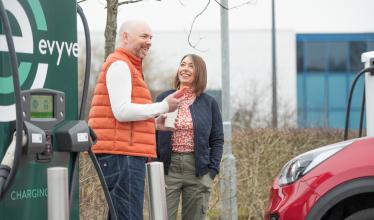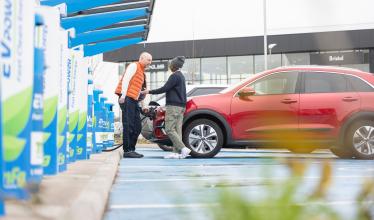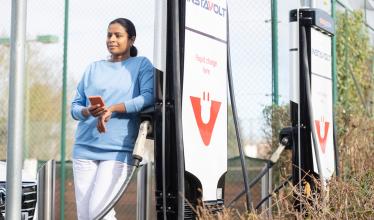One of the amazing things about owning an electric vehicle is that it is possible to recharge for free at the majority of public charging stations across the UK. I myself have sat smugly in the driving seat knowing that the next 80 miles in my EV won’t of cost me a penny. However, a shift is starting to emerge where network providers are bringing in charges to use their charging points.
This movement has definitely left the EV community divided, which is understandable, as it’s hard to stomach spending up to £5 per charge after growing accustomed to life in the free lane.
One of the problems facing local and national charging networks is reliability and unfortunately, this free-model of charging is (so far at least) a central part to the issue. Most EV drivers would agree that “range anxiety” is a term of the past. With over 3,500 charging locations, of which over 537 have a rapid charger, EV drivers can generally plan a trip with a conveniently located charge point on route.
The problem comes when the charge point is faulty and out of operation, which often makes longer trips in an electric vehicle impossible, or at least a hassle. So there is a new term in town and that is “charger anxiety”. This embodies that nervous feeling when pulling up to a charger and praying that you will be able to continue your journey without the aid of a tow truck.

Free networks, such as Ecotricity’s Electric Highway, are a great thing and facilitate EV drivers to travel millions of free miles every year; more than that they have played a key role in kick-starting the UK’s EV revolution. Unfortunately, many of their charge points are currently off-line or unavailable more often than the industry average (see EV Status charts).
On the other hand, Chargemaster’s POLAR network, who operate a PAYG scheme for users, have recently boasted that it’s UK charging network, containing over 4,000 public points, is 99% operational. This has to be largely down to moving away from a zero-cost model and in turn, increasing the availability of maintenance funds.
It seems then, that charge point fees that ensure manufacturers and network operators can properly maintain their devices are an inevitable development. Unless future networks decide to offer high-quality service at zero-cost (which seems unlikely), charges for charging will be central in building the reputation of UK charging infrastructure as something that can be trusted and relied upon.
It’s unrealistic to expect charge points to be working 100% of the time whilst continuing to use them for free. Of course all of us indirectly pay for many of the installations as tax-payers, however, that does not cover the continual upkeep of high-powered and complex charging points.
Clearly, these fees should be proportional and be monitored by the industry and users alike, and continue to be well below what it would cost to refuel a conventionally powered vehicle. That said, Zap-Map supports the emerging charging networks that charge a fair price for a high-quality service.



